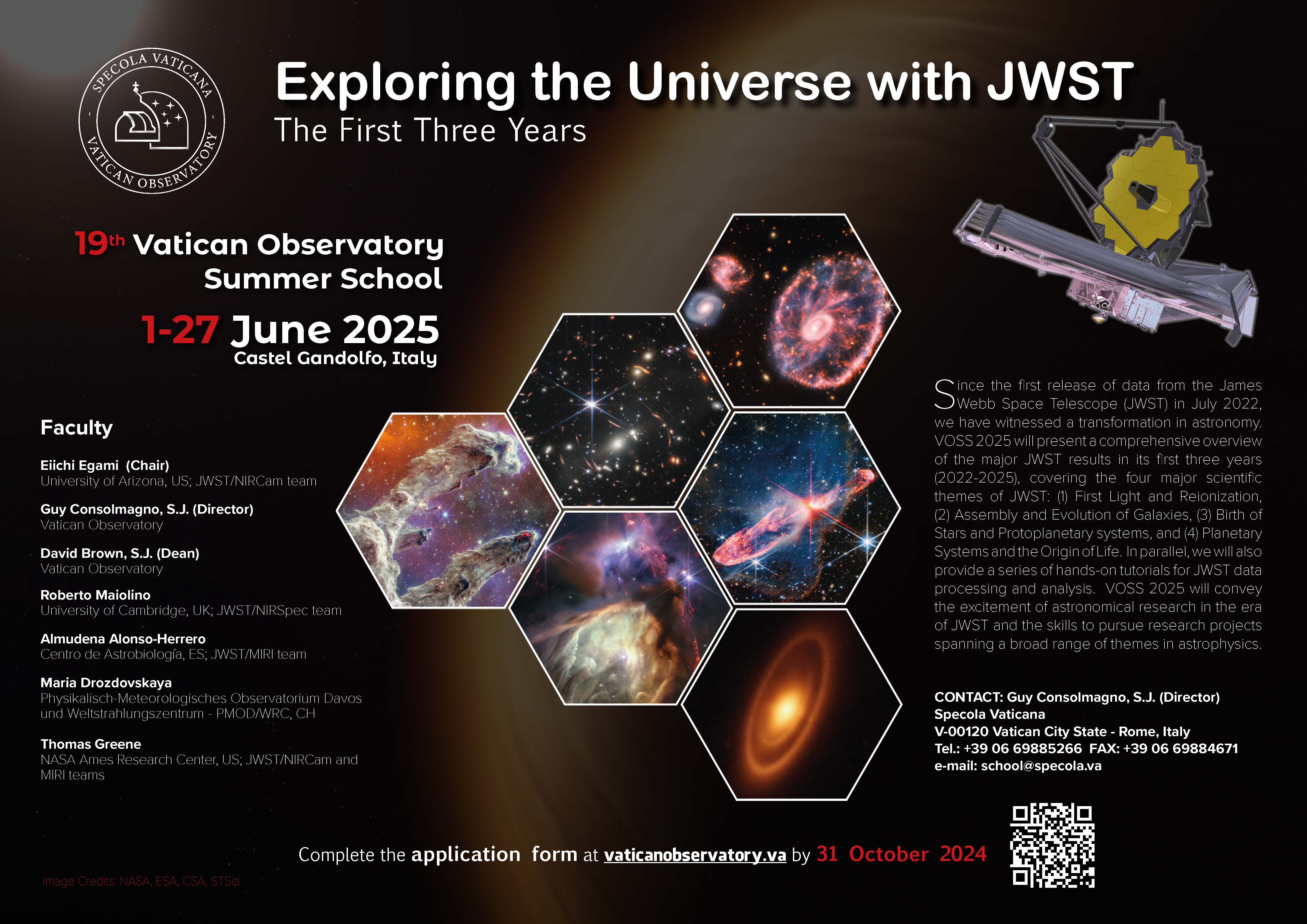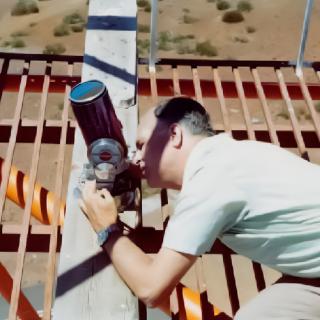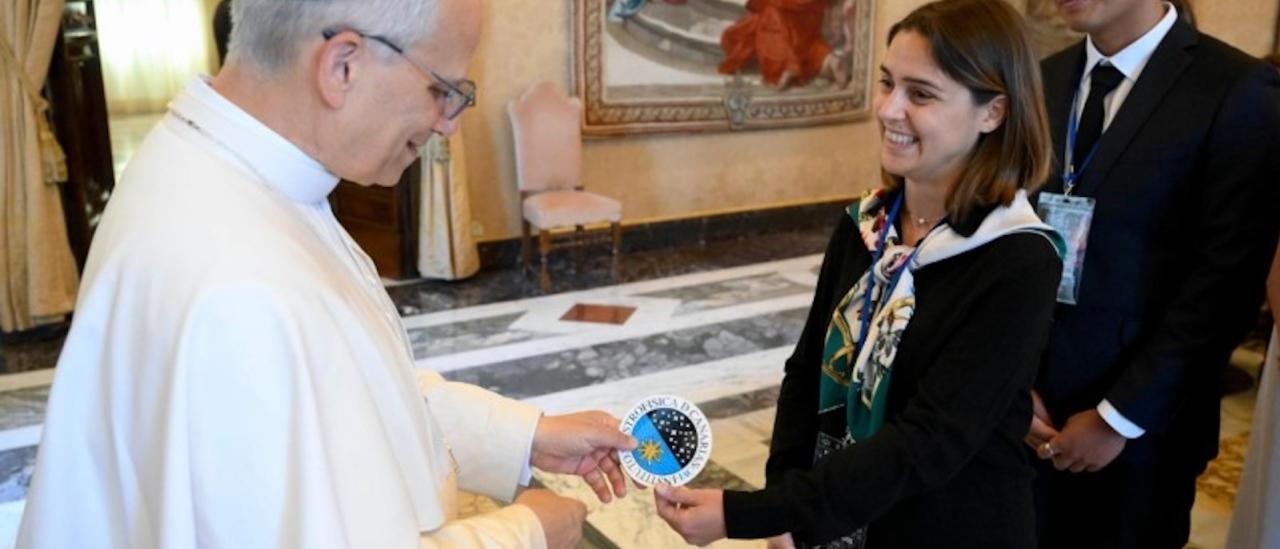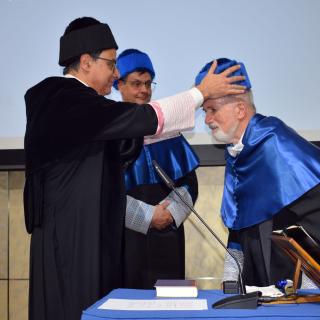The image of the moment was featured by Vatican News as the headline of its news channel.
Two young researchers from the Instituto de Astrofísica de Canarias (IAC), Stella Tsilia and Jun-Yan Zhang (Jerry), participated in the Vatican Observatory Summer School 2025, held from 1 to 27 June at the Vatican Observatory in Castel Gandolfo (Italy). During the audience granted by His Holiness Pope Leo XIV to the course participants, Tsilia and Zhang presented the Pontiff with a sticker bearing the IAC logo as a token of gratitude and institutional recognition. The gesture was picked up by the Vatican media and became the featured image on the front page of its official channel, Vatican News.
Pope Leo XIV received the 24 young astronomers, from 22 countries, on the morning of 16 June in the Vatican Consistory Hall. In his speech, he urged the students to share the knowledge they had acquired generously: ‘Never forget that what you do is for the benefit of all. Be generous in sharing what you learn and experience, as best you can and in any way possible.’
The internationally renowned Vatican Observatory Summer School is dedicated this year to exploring the universe with the James Webb Space Telescope (JWST). During the programme, participants attend lectures given by world-renowned experts, develop research projects and take part in cultural and scientific activities in various Italian cities.
In his speech, the Pope highlighted the importance of the JWST as a revolutionary scientific tool: ‘Thanks to this truly extraordinary instrument, for the first time we can observe in depth the atmospheres of exoplanets, where life could have developed, and study the nebulae where planetary systems are formed.’ He also recalled that the telescope is the result of decades of collaborative work between scientists and engineers from around the world, emphasising that ‘each of you is part of a much larger community.’
The participation of the two IAC doctoral students in this school reflects the Institute's commitment to international training excellence and the promotion of scientific knowledge.





